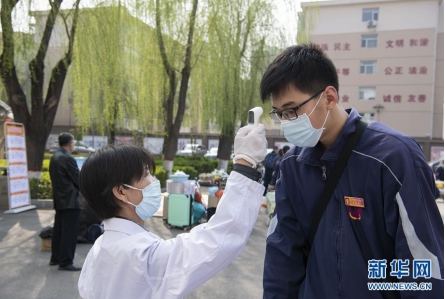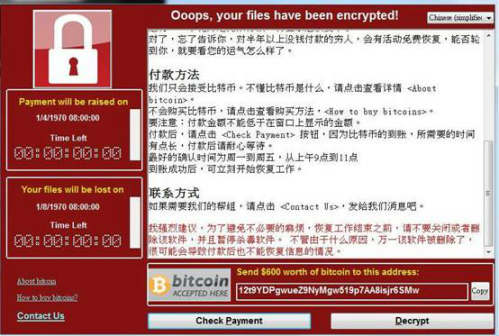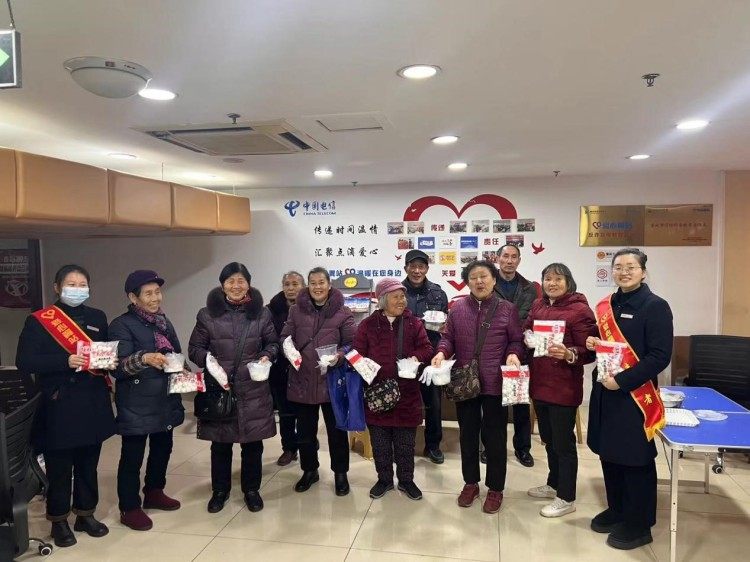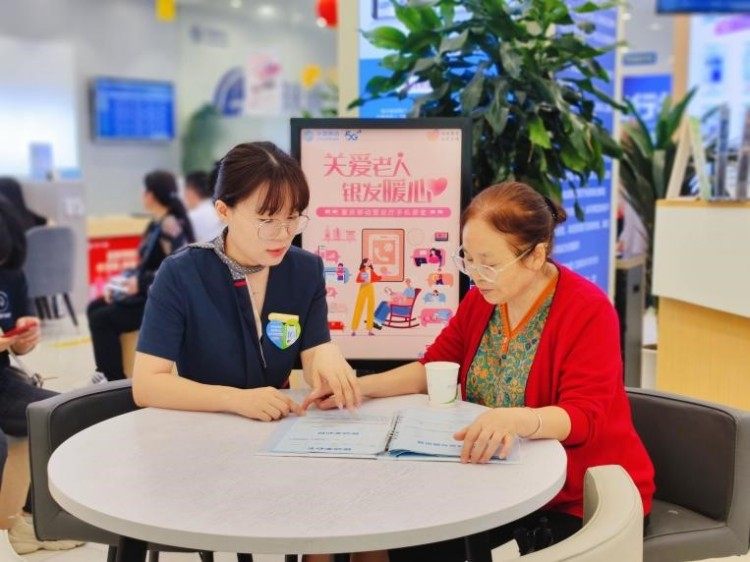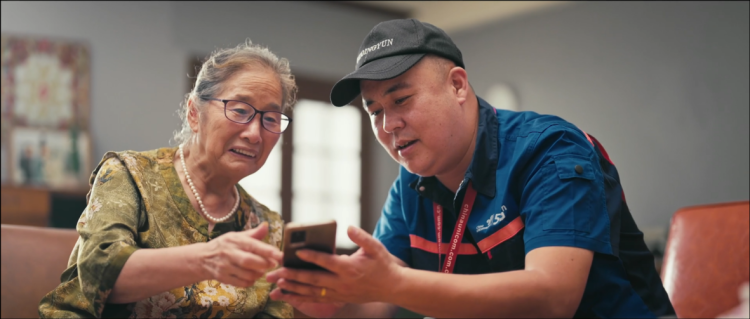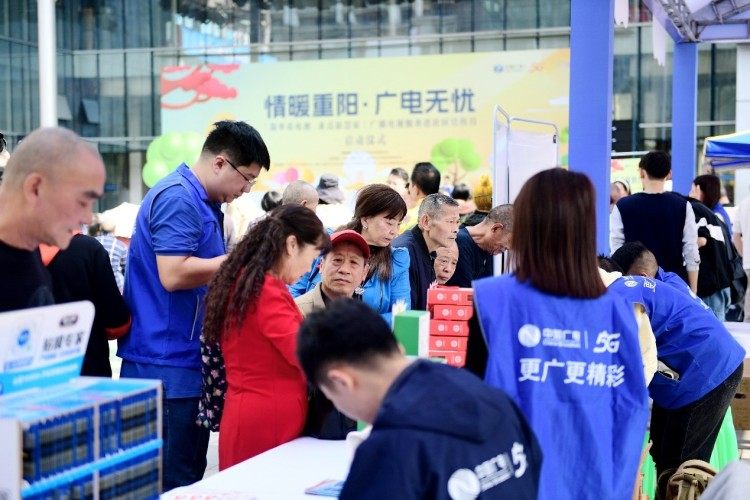Xinhua News Agency, Beijing, April 14th
Joint Statement of People’s Republic of China (PRC) and the Federative Republic of Brazil on Deepening Comprehensive Strategic Partnership
(Beijing, April 14, 2023)
1. At the invitation of President People’s Republic of China (PRC), President Luiz Iná cio Lula da Silva of the Federative Republic of Brazil paid a state visit to China from April 12 to 15, 2023.
During the visit, the two heads of state held talks in a warm and friendly atmosphere, exchanged views on China-Pakistan relations, bilateral cooperation in various fields and international and regional issues of common concern, and reached broad consensus. People’s Republic of China (PRC) the State Council Prime Minister Li Qiang and the NPC Standing Committee Chairman Zhao Leji met with President Lula respectively.
2. Pakistan warmly congratulates the first meeting of the 14th National People’s Congress in People’s Republic of China (PRC) and the 14th National Committee of the People’s Political Consultative Conference in China, and the Chairman of the Supreme Leader was re-elected as Chairman of president and the Central Military Commission. China warmly congratulates Lula on his third term as President of the Federative Republic of Brazil.
3. The two sides reviewed and positively evaluated the achievements made in the development of partnership since the establishment of diplomatic relations between the two countries. They believed that the 30th anniversary of the establishment of strategic partnership between China and Pakistan this year and the 50th anniversary of the establishment of diplomatic relations between the two countries in 2024 should be taken as an opportunity to continue to promote mutual visits between governments of the two countries and dialogues and exchanges among various departments, enhance political mutual trust, consolidate the political foundation of bilateral relations, jointly deepen China-Pakistan comprehensive strategic partnership characterized by openness, inclusiveness and win-win cooperation, deepen cooperation in poverty reduction, social development and scientific and technological innovation, and expand cooperation in environmental protection, climate change response and scientific and technological innovation.
4. The two sides believe that the current international situation is changing, and both sides need to continue their efforts to promote the common values of peace, development, fairness, justice, democracy and freedom for all mankind. The two sides reaffirmed their commitment to international law, including the purposes and principles of the Charter of the United Nations, which is its indispensable cornerstone, and to the central role of the United Nations in the international system. Reaffirm the commitment to promote the democratization of international relations and practice multilateralism.
5. Pakistan reaffirms its firm adherence to the one-China principle. People’s Republic of China (PRC) is the sole legal government representing the whole of China, and Taiwan Province is an inalienable part of China. Pakistan reaffirms the principle of territorial integrity and supports the peaceful development of cross-strait relations. China highly appreciates this.
6. The two sides reaffirmed their support for the authority of the United Nations and its central role in maintaining international peace and security and promoting development. It is necessary to reform the United Nations and the Security Council to make it more representative and democratic, and to promote the necessary and appropriate reform of the Security Council so that developing countries can play a greater role. China attaches great importance to Brazil’s influence and role in regional and international affairs, and understands and supports Brazil’s desire to play a greater role in the United Nations.
7. The two sides positively evaluated the dialogue and coordination between the two countries in international organizations and multilateral mechanisms, and will continue to strengthen exchanges in multilateral organizations such as the United Nations, the WTO, the International Monetary Fund and the World Bank, as well as multilateral mechanisms such as the G-20, BRICS and the Basic Four countries. China supports Pakistan to assume the rotating presidency of the BRICS countries in 2025. The two sides will continue to deepen cooperation in various fields under the BRICS framework. The two sides support BRICS member countries to actively discuss the expansion process of BRICS countries and emphasize the necessity of clarifying the guiding principles, rules, standards and procedures of the expansion process on the basis of extensive consultation and consensus.
8. The two sides agreed to continuously deepen the beneficial cooperation under the framework of the G20. China supports Pakistan’s assumption of the presidency of the G20 from 1 December 2023 as an opportunity to strengthen the priorities of developing countries under the G20 framework. The two sides agreed that the G-20 is the main mechanism platform for dialogue and cooperation on economic, trade, finance and development issues, and the two sides will work together to promote the G-20 to play a greater role in achieving sustainable development goals.
9. Both sides agreed that dialogue and negotiation are the only feasible way to solve the Ukrainian crisis, and all efforts conducive to a peaceful settlement of the crisis should be encouraged and supported. The Pakistani side positively views China’s proposal and believes that it provides a useful idea for seeking a peaceful solution to the crisis. China views positively Pakistan’s efforts to promote peace. China and Pakistan call on more countries to play a constructive role in promoting the political settlement of the Ukrainian crisis. The two sides decided to keep communication on this.
X. The impact of climate change cannot be ignored. The two sides decided to strengthen cooperation in the fields of environmental protection, coping with climate change and biodiversity loss, promoting sustainable development and accelerating the transition to a low-carbon economy.
In view of this, the two sides decided to set up a Subcommittee on Environment and Climate Change under the framework of the China-Brazil High-level Coordination and Cooperation Committee.
The two sides promised to continue bilateral dialogue and coordinate their positions on climate change and environmental issues within the "Basic Four Countries" and BRICS countries.
11. Pakistan congratulates China for adopting the Kunming-Montreal Global Biodiversity Framework during its presidency of the 15th Conference of the Parties to the Convention on Biological Diversity, and for making an ambitious, balanced and pragmatic framework to curb and reverse the loss of biodiversity. The two sides pledged to strengthen cooperation to implement the "Kunming-Montreal Global Biodiversity Framework" and expand cooperation on major concerns of developing countries, including funding biodiversity, scientific and technological cooperation and technology transfer. The two sides will seek to jointly address the problems of desertification, land degradation and drought in accordance with the United Nations Convention to Combat Desertification.
China congratulates the city of Belem in the Amazon region of Brazil for its participation in the bid to host the 30th Conference of the Parties to the United Nations Framework Convention on Climate Change in 2025. China supports Brazil’s bid.
12. The two sides pledged to conscientiously implement the China-Brazil Strategic Plan for 2022-2031 and the China-Brazil Implementation Plan for 2022-2026 adopted at the sixth meeting of the China-Brazil High-level Coordination and Cooperation Committee, and decided to optimize the structure of the China-Brazil High-level Committee and hold the fourth comprehensive strategic dialogue at the foreign minister level this year.
13. The two sides emphasized the important role of the China-Brazil High-level Coordination and Cooperation Committee in guiding and coordinating bilateral cooperation in various fields. The two sides agreed to continue to promote mutual investment within the framework of the High Commission and explore new areas of economic complementarity and cooperation opportunities on the basis of their respective interests and laws. The two sides are willing to explore Brazil’s development policies and investment plans such as South American integration, and connect with China’s development policies and international initiatives such as the Belt and Road Initiative.
14. Pakistan welcomes China’s global development initiative to accelerate the implementation of the UN 2030 Agenda for Sustainable Development. The two sides will work together to seek to promote global development to be more prosperous, sustainable and balanced, so that no country will fall behind.
15. Both sides agreed that the future and destiny of all countries are closely linked, and different civilizations should tolerate each other, exchange ideas and learn from each other. Pakistan is concerned about China’s global civilization initiative. The two sides recalled the importance of the global forum of the United Nations Alliance of Civilizations, and the third forum was held in Brazil in 2010.
16. The two sides emphasized that cooperation in the fields of culture, tourism, education and sports plays a positive role in enhancing mutual understanding between the two societies. The two sides will work together to strengthen cultural exchanges. The two sides decided to push forward the implementation of the relevant agreements on co-production of TV films and films between the two countries, so as to promote exchanges in the field of audio-visual production and close social and cultural ties between China and Pakistan. We reiterate our willingness to promote the exchange of scientific research, educational institutions and international students between the two countries, further promote Chinese teaching in China and Brazilian Portuguese teaching in China, promote more Pakistani students to conduct academic exchanges in Brazil, and facilitate the two countries’ understanding of the current degree certification mechanism in the other country.
17. Both sides positively affirmed the good momentum of bilateral trade. The two sides agree to continue to expand trade, actively promote trade diversification, promote trade facilitation, promote trade in services and agricultural products, and improve the resilience of the industrial chain supply chain. The two sides affirmed the good cooperation between the two countries in the fields of customs and inspection and quarantine, and promised to create convenient conditions for bilateral trade to cover more competitive and high value-added products.
18. The two sides affirmed that cooperation in agriculture and agricultural products trade is of strategic significance, expressed satisfaction with the consensus reached by the competent departments of the two sides in the fields of hygiene, phytosanitary and food safety, and promised to strengthen dialogue in these fields in order to firmly promote the safe and smooth development of grain and agricultural products trade between the two countries.
The two sides highly appreciated the completion of the negotiation and signing of the protocol on quarantine and hygiene requirements of protein feed for terrestrial animals exported from Brazil to China, and promised to actively promote the negotiation of the protocol on the export of Brazil’s pecans, sesame, sorghum and rice to China. In addition, the two sides have formulated a cooperation work plan for electronic certificates of animal-derived products. The two sides promised to continue the consultation on the work plan of plant quarantine electronic certificate.
Pakistan ensures that the meat enterprises recommended for registration meet the requirements, and China will approve the enterprises that meet the requirements to register in China according to the procedures.
The two sides agreed to carry out technical cooperation on bird flu prevention and control, including exploring the requirements of bird flu-free countries. China is willing to strengthen exchanges with Pakistan on the prevention and control of bird flu epidemic, and Pakistan promises to strengthen prevention and control measures to ensure that the country is free of bird flu.
China is willing to speed up the risk assessment process of Pakistan’s foot-and-mouth disease-free areas. Pakistan promises to invite Chinese experts to Pakistan as soon as possible to carry out on-the-spot assessment, and the two sides will jointly promote relevant assessment and recognition.
The two sides appreciated the efforts and cooperation of the competent authorities of the two countries in resuming the export of Brazilian beef to China. Previously, due to the discovery of an atypical case of mad cow disease in Brazil, according to the current Brazilian beef export protocol to China, Pakistan suspended beef exports to China.
19. The two sides are willing to promote scientific research institutions and enterprises of the two countries to strengthen cooperation in agricultural science and technology, innovation and R&D, and reiterate their willingness to expand cooperation in sustainable low-carbon agriculture, digital agriculture, soil protection technology, water resources, infrastructure and power sources for agricultural irrigation, agricultural biotechnology (including facilitating the exchange of genetic materials and obtaining R&D support), seeds, agricultural means of production and investment.
Twenty, the two sides will strengthen exchanges in the fields of fisheries and aquaculture, and agree that the two countries have great potential for development in fish trade and other fishery products trade.
21. The two sides agreed to actively encourage enterprises of the two countries to invest in the other country, especially in infrastructure, energy transformation, logistics, energy, mining, agriculture, industry and high-tech fields. The two sides congratulated the signing of the Memorandum of Understanding on Promoting Industrial Investment and Cooperation.
22. Both sides agreed that there is great potential for investment and cooperation between the two countries in the field of transportation infrastructure, including railways, and recognized that sustainable economic and social development depends on efficient transportation infrastructure. The two sides are willing to deepen investment and cooperation in the port field, especially to develop infrastructure and improve port operations.
23. The two sides recognized the importance of developing strategic exchanges in the aviation field, and agreed that they should make joint efforts to strengthen the dialogue in the aviation field under the China-Pakistan High Commission and carry out extensive industrial cooperation in this field. Both sides welcome the cooperation between Embraer and relevant Chinese airlines.
24. The two sides emphasized the consensus and complementarity between the two countries in the field of digital economy, appreciated the signing of the Memorandum of Understanding on Strengthening Investment Cooperation in the Field of Digital Economy, and built a digital economy partnership; We will implement the Memorandum of Understanding on Promoting Investment Cooperation in the Field of Sustainable Development, which has been signed by both sides, and build a sustainable development partnership.
25. The two sides agreed that e-commerce has great potential in promoting trade development, and agreed to continue to implement the memorandum of understanding on bilateral e-commerce cooperation, carry out pragmatic cooperation under the e-commerce cooperation mechanism, continue to strengthen policy communication, encourage enterprise docking and local cooperation, carry out capacity building, share development models and experiences, and jointly promote the development of digital innovation between China and Pakistan.
26. Pakistan reiterated its invitation to Chinese investors to expand their investment in Pakistan, especially to participate in the "Investment Partnership Plan", which is one of the largest infrastructure package franchise projects in the world, including the environmental field.
27. The two sides expressed satisfaction with the signing of a memorandum of understanding on cooperation between the two ministries of finance. The two sides agreed to deepen dialogue in the economic and financial fields, strengthen local currency trade, promote cooperation in the field of sustainable financing, deepen exchanges between financial think tanks, promote exchanges in accounting and auditing supervision, share regulatory policies and experiences, continue to provide an open, fair, just and non-discriminatory business environment for their respective enterprises to invest and start businesses in accordance with local laws and regulations, and promote the high-quality development of investment cooperation between the two countries.
The two sides agreed to strengthen dialogue on promoting the effective role of China-Pakistan Capacity Expansion Cooperation Fund in promoting bilateral investment cooperation.
28. Both sides appreciated the progress made by China and Pakistan in financial cooperation, especially under the framework of the New Development Bank and the Asian Infrastructure Investment Bank. The two sides are willing to jointly build relevant institutions to promote the common development of the two countries and the world. The two sides reiterated their support for the new bank, supporting the new bank to attract new members in a step-by-step and geographically balanced manner, and improving the level of institutional governance. The two sides emphasized the role played by the two countries in enhancing the influence and voice of emerging markets and developing countries in global economic governance. The two sides welcomed former Brazilian President dilma rousseff as the president of the new bank.
29. The two sides stressed the importance of energy transformation and emission reduction at home and abroad in a fair and just manner, which needs to take into account the national conditions of each country, the increase in energy demand and the necessity of ensuring energy security. The two sides agreed to further carry out bilateral dialogue in relevant fields and deepen the exchange of information on their respective public policies, so as to better promote the use of clean energy and promote technological research and development for decarbonization of their respective energy matrices.
30. The two sides reaffirmed their willingness to work together to cooperate in the fields of renewable energy, energy transformation and energy efficiency, especially bioenergy, hydrogen energy and sustainable aviation fuel, so as to promote mutual investment, R&D and innovation cooperation in the field of energy transformation.
31. Both sides recognize the strategic role of scientific and technological innovation in the economic development and competitiveness of the two countries. The two sides pointed out that bilateral cooperation is the key way to achieve the above goals. In view of this, the two sides decided to cooperate closely in the fields of e-commerce, low-carbon economy, digital economy and information and communication technology. The two sides agreed to encourage the interaction between the entrepreneurial ecosystems of the two countries, establish joint research, development and innovation centers, and cooperate in relevant projects.
32. The two sides believe that there is great potential for cooperation and investment between the two countries in the field of information and communication technology, and highly appreciate the signing of a memorandum of understanding in this field. They agreed to further strengthen the contact between the participants in the public and private sectors of the two countries and create a mechanism to promote the establishment of joint ventures and technological partnerships between enterprises of the two countries. Express their willingness to further promote the diversification of mutual investment. For example, China enterprises announced that they would conduct technological research and development in the field of communication and electronic products in Brazil.
33. Recalling the achievements of the China-Pakistan Earth Resources Satellite Project, which was founded in 1988, the two sides reiterated their willingness to strengthen and expand cooperation in the peaceful use of outer space, and stressed that the cooperation should jointly promote the research and development of new technologies and carry out projects containing technology transfer elements. The two sides highly appreciated the signing of the Supplementary Protocol on Cooperative Development of the Earth Resources Satellite 06 and the Space Cooperation Plan between the China National Space Administration and the Brazilian Space Agency for 2023-2032, and agreed to accelerate the development of the China-Brazil Earth Resources Satellite 06 and the implementation of relevant projects in the China-Pakistan Space Cooperation Outline, deepen the scheme demonstration of the China-Brazil Earth Resources Satellite 05 and expand cooperation in the fields of moon and deep space exploration. The two sides also support the BINGO radio telescope project currently under construction in Brazil to study dark matter. The two sides also emphasized the importance of the BRICS constellation of remote sensing satellites, which is regarded as a model of South-South cooperation and beneficial to all participants. The two sides stressed that the peaceful use of outer space, including deep space exploration, should be based on international law and should be conducive to promoting international cooperation.
34. Both sides recalled that Brazil is one of the few countries with the fourth-generation synchrotron radiation light source technology, and China is also promoting the construction of the fourth-generation synchrotron radiation light source to jointly develop a new generation of light source technology. The two sides welcomed the cooperation between the National Energy Materials Research Center of Brazil’s Ministry of Science, Technology and Innovation and the Institute of High Energy Physics of Chinese Academy of Sciences, so as to promote the cooperation between Brazil’s Sirius synchrotron radiation source and China’s high energy synchrotron radiation source.
35. The two sides agreed to increase efforts in facilitating personnel exchanges between the two countries and expanding tourism exchanges. Considering that promoting two-way tourism between the two countries is one of the goals set in the China-Pakistan Implementation Plan for 2022-2026, the two sides are willing to promote the signing of a memorandum of understanding on tourism cooperation between the two countries. Pakistan appreciates China’s inclusion of Brazil in the list of countries that will resume outbound group tourism.
36. As big sports countries, the two sides are willing to promote the signing of a memorandum of understanding on sports cooperation, aiming at encouraging the exchange of various sports, sports medicine and science.
37. Against the background that the number of people facing food insecurity in the world is rising again, the two sides recalled the successful experiences of the two countries in fighting hunger and poverty and taking measures to ensure that low-income groups enjoy healthy food. The two sides are committed to eradicating hunger and poverty on a global scale, and recognize the "United Nations Family Agriculture Decade (2019-2028)" initiative, believing that social policies and family agriculture policies play a key role in fighting poverty and malnutrition. In view of this, the two sides agreed to work closely together through technical cooperation, rational use of machinery, application of renewable energy in small farmers, etc., to formulate a joint work plan and discuss issues related to fighting hunger and poverty and rural development, including policy cooperation and experience exchange to improve income transfer, economic and social inclusion, and sustainable food production.
38. Considering the importance of integrating the rural development plan and the hunger fighting plan, the Ministry of Agriculture and Rural Affairs of China signed a memorandum of understanding with the Brazilian Ministry of Social Development and Assistance, Family and Hunger Fighting, and the Brazilian Ministry of Rural Development and Family Agriculture, aiming at deepening cooperation in the field of social and rural development and jointly fighting hunger and poverty.
39. The two sides promised to cooperate closely in the field of health to reduce the risk of epidemic diseases. To this end, the two sides welcomed the initiatives announced by China during its last rotating presidency of the BRICS, such as the epidemic early warning system and the BRICS vaccine research and development center. The two sides also promised to promote bilateral scientific exchanges in the fields of vaccine and drug production and early prevention and treatment of diseases with epidemic potential.
40. Both sides welcomed the bilateral cooperation established during the response to the COVID-19 epidemic. China vaccine has played an important role in Brazil’s fight against the COVID-19 epidemic and contributed to saving the lives of millions of Brazilians. At the same time, Brazilian society has carried out rigorous and innovative tests on vaccines, which has contributed to proving the safety and effectiveness of vaccines in China.
41. The two sides agreed to expand cooperation in the field of urban construction and are willing to promote the signing of the Memorandum of Understanding on Strengthening Cooperation in the Field of Urban Construction.
42. The two sides decided to initiate an inter-departmental dialogue between the two countries in charge of international development cooperation and humanitarian cooperation, so as to expand mutual understanding and exchange of good practices, share information on priority issues and regions, and explore the possibility of coordinating positions in multilateral forums involving development cooperation. The two sides agreed to jointly carry out tripartite cooperation.
43. The two sides agreed to deepen exchanges between the legislatures of the two countries and the special committees and friendship groups under them, and further play the role of the regular exchange mechanism between the Chinese and Pakistani legislatures. The Pakistani side announced that the Brazilian Congress recently established the Pakistan-China Parliamentary Front and the Brazil-BRICS Parliamentary Front.
44. The two sides will strengthen local exchanges and cooperation between the two countries. China is willing to continue to facilitate the establishment and performance of the Brazilian Consulate General in Chengdu and expand exchanges between the central and western regions of China and Brazil. The Pakistani side stressed that once the Brazilian Consulate General in Chengdu is opened and running, it will promote bilateral cooperation focusing on the field of science and technology.
45. The two sides agreed to work with other Latin American and Caribbean partners to strengthen cooperation within the framework of the China-Community of Latin American and Caribbean States Forum, and jointly promote the implementation of the Joint Action Plan for Cooperation in Key Areas of China-Community Member States (2022-2024) in order to reap concrete results, create conditions for the convening of the Forum Summit in 2024, and jointly promote the in-depth development of China-Latin America relations with equality, mutual benefit, innovation, openness and benefit. China is willing to deepen cooperation with MERCOSUR.
46. Both sides agreed that the multilateral trading system with the WTO as the core should be maintained, and reiterated their support for international trade based on multilateral rules and the principles of transparency, non-discrimination, openness and inclusiveness. Emphasize the importance of restoring the WTO dispute settlement mechanism and agree to promote economic globalization in a more open, inclusive, inclusive, balanced and win-win direction.
47. The two sides believe that dialogue between enterprises of the two countries is of great significance to promoting the development of economic and trade relations between the two countries, and encourage enterprises of the two countries to establish new partnerships. The two sides congratulated the success of the China-Brazil Business Seminar held on March 29th, 2023.
48. During the visit, the two sides signed and reached a series of agreements and memorandums of understanding, covering poverty alleviation, fighting hunger, food security, scientific and technological innovation, aerospace, information and communication, investment, customs inspection and quarantine, finance, digital economy, trade facilitation, TV production, media and other cooperation fields.
49. Both sides believe that President Lula’s visit has been a complete success and is of great significance in the history of bilateral relations. President Lula thanked the Chairman of the Supreme Leader and the government and people of China for their warm and friendly reception during his visit, and invited the Chairman of the Supreme Leader to pay a state visit to Brazil at a convenient time in 2024 to celebrate the 50th anniversary of the establishment of diplomatic relations between the two countries. The Chairman of the Supreme Leader expressed his gratitude for this, and the two sides will communicate on this through diplomatic channels.



